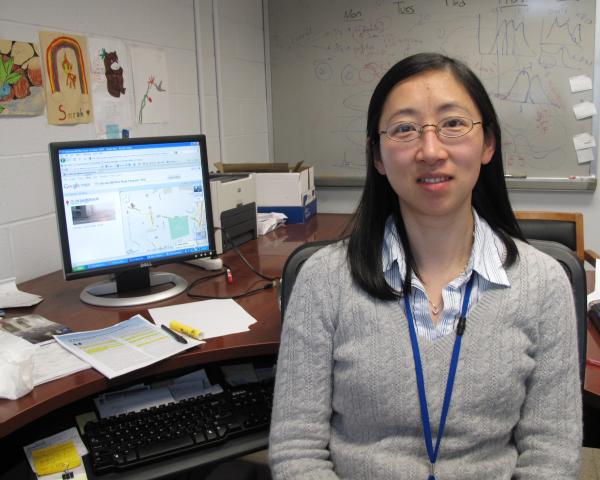
Dr. Sihong Wang, assistant professor of biomedical engineering, Grove School of Engineering, The City College of New York
NSF CAREER Award to Dr. Sihong Wang Supports Effort to Hasten Process of Prescribing Cancer Therapies
A biomedical engineering professor in the Grove School of Engineering at The City College of New York has been awarded a National Science Foundation CAREER grant to develop a micro-tumor array that could evaluate dozens of different drugs on a single chip in a single test. If successful, the research could take the guesswork out of treating cancer and other diseases, and lead to faster recoveries and better patient outcomes.
“Cancer treatment plans often call for surgery followed by chemotherapy or radiation therapy,” explains Dr. Sihong Wang, assistant professor of biomedical engineering and principal investigator. “Many drugs are available, but doctors don’t know which is best for their patient because individuals respond differently to different drugs. We aim to develop a tool that can screen drugs faster.”
The device Professor Wang is developing is a microfluidic platform consisting of tiny chambers where tumors will be grown. It simulates the conditions inside the human by replicating the way drugs diffuse into tumors through capillaries, which are the smallest blood vessels.
The prototype is arranged as a 10 x 10 array of micro wells or cells, capable of testing ten different drugs on ten different kinds of tumors. However, Professor Wang says her goal is to scale the device up so that it could eventually test hundreds to thousands of drugs at a time.
The scaled-up microfluidic human tumor arrays would provide a platform for pharmaceutical companies to conduct high-throughput drug screening in a close-to-reality scenario. This could lead to fewer animals used in pre-clinical trials and fewer drug recalls.
“Doctors are interested mainly in finding out how patients respond to different drugs,” she says. “It would take only a few hours to a few days, depending on the kinetics of individual drugs, to test many drugs simultaneously using tissue biopsy samples from patients. This would speed up prescribing the right medication.”
This is critical since a chemotherapy treatment cycle takes around a month, and if the patient does not respond to the prescribed drug the process has to be repeated. As the process of finding the right drug lengthens, the odds of recovery worsen.
CAREER grants are NSF’s most prestigious award to early-career researchers. Professor Wang was awarded $400,000 over five years, beginning March 1. In addition to supporting her work, the CAREER award will enhance research opportunities and increase the number of students from underrepresented groups entering the biotechnology and bioengineering fields.
Professor Wang collaborated with Dr. Xeujun Jiang, associate professor of cell biology at Memorial Sloan-Kettering Cancer Center, on a pilot study that was funded through the CCNY/MSKCC cancer research, education and outreach partnership. They plan to apply jointly for a National Institutes of Health RO1 grant – the largest grant category – to conduct further research.
MEDIA CONTACT
Ellis Simon
p: 212.650.6460
e:
esimon@ccny.cuny.edu